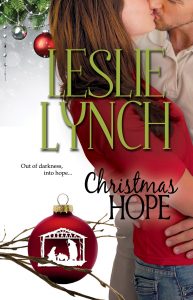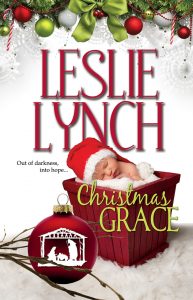Chapter 1
“Skydiving?”
Ella McKendrick stared at the hands-free phone on the worktable, the clay between her fingers forgotten. The kick wheel slowed, and she gave it a halfhearted scuff with her sneakered foot.
“Mom, you’re seventy-four!” She winced at the way it sounded, and knew she was in for an earful. Glad to be the sole occupant of the co-op studio so no one would witness the tongue-lashing, she braced herself.
“And you’re fifty!” Gertie’s voice rose, sounding both garbled and shrill through the speakerphone. “What does that have to do with anything?” She punctuated the question with a harrumph. “They say it’s no different than stepping off your couch. Besides, I don’t have to ask your permission. I’m just informing you.” Her tone landed just shy of belligerent.
Ella let the wheel decelerate and lifted her hands from the rotating cylinder of malleable clay, her focus broken. She scratched her nose where an itch had decided to settle just after she’d begun centering, and left a smear of the cool, smooth mud. At least it would soothe the itch.
“I know that, Mom. I’m just concerned.” She inhaled, the earthy scent of the studio bringing its singular calmness to her heart. “Is it a buddy jump, where you’re tandem with an instructor?”
She could only hope. Visions of her mother plummeting to earth while tugging on the wrong cord sent a shudder through her.
Gertie sighed. “Yes, though I’d rather jump solo.”
I’m sure you would, Mom.
Ella cleared her throat, searching for a diplomatic and supportive response. It wasn’t forthcoming, so she forced a bright tone into her voice and made up some words that sounded good.
“Well, if that was good enough for the first President Bush, it’s good enough for you.”
“He was an old man when he did it!” On a scale of one to ten, the affront in her mother’s voice was at least fifteen.
“That’s not what I meant. You’re not old. And you’re very active, which is excellent.”
“Active, schmactive. I’ve got a lot of living left to do, and I’m not about to do it from the sidelines.” A hint of desperation lurked beneath her words.
“Of course, Mom. I would never suggest otherwise.”
Memories of her dad’s unexpected death six months ago swamped Ella, and a lump rose in her throat. If the ache of his loss still sent a shaft of pain into her heart, how much harder was it for her mother? The woman had lost her life companion.
Ella’s parents had been devoted to each other, high school sweethearts who had kept their love vibrant for over fifty years. Unlike her own marriage, which seemed to be on its way to a death spiral of apathy.
She swallowed past the sadness, and then filled the brief silence. “It’s not quite time for you to embark on a bucket list. I just don’t want you to get hurt.”
“Well, I’ll be just fine.”
The chipper note in Gertie’s voice sounded a bit artificial, but Ella wasn’t going to press the issue. “So, would you like to come over for dinner?”
She glanced at the clock and made a quick calculation. She had planned to spend another hour throwing shapes that would eventually be mugs, but family trumped the co-op’s annual holiday sale. Never mind that she would have to find another block of hours to catch up with her production quota.
Muffling her sigh, she recalculated dinner. Instead of grilled chicken breasts, she could cut them up and make a stir-fry . . .
“No, thank you. I’ve got plans.”
Ella lifted an eyebrow. Her mom sounded vague and a bit uncertain. But she knew from past experience that probing would get her nowhere, just resistance worthy of the most recalcitrant teen.
“Okay. Then we’ll see you on Sunday, right?”
“I’ll let you know.” Gertie signed off after that ambiguous answer.
Shrugging, Ella dipped her sponge in the water and resumed the swing of her leg on the heavy flywheel. A wave of anxiety set butterflies aflutter in her stomach, and she rued the time she, along with the dozen or so other members of the co-op, had spent on promotion in the past weeks. Hanging flyers and schmoozing with shopkeepers had stolen time she desperately needed for the final kiln firing for the items slated for the show. Given that firings were sometimes as capricious as clay, a niggle of worry threatened to turn her butterflies into light-crazed moths.
But the hypnotic motion of the wheel and the lure of the clay worked their magic. Ella’s concerns faded as her world narrowed to the rhythmic sound of her foot on the flywheel and the intimate relationship of potter to clay.
One lovely bowl and two gargoyle-faced mugs later, Ella centered her last chunk of clay for the day, opening the form before she began to draw the sides up. The mugs had sparked an idea, and she leaned over the wheel, intent on bringing it to life.
Until the door to the studio slammed open. The deep thud reverberated through the maze of shelves filled with pots in various stages of production.
Ella flinched and whispered a curse as the pliable clay on the wheel wobbled in response to her motion. Focusing on the clay rather than the distraction, she dragged the toe of her sneaker on the flywheel to slow its rate of revolution, and adjusted her hands to salvage the form.
“Ella!” Her husband’s voice boomed, filling the space with the twin forces of his voice and personality.
She jerked, shocked at his intrusion into what he had jokingly dubbed her hobby home, though the joke had an edge of sarcasm to it. The clay warped beyond repair at her movement, and she lifted her hands away in defeat, letting the off-center cylinder wobble to a stop.
Even so, her heart gave a little skip of joy at Mason’s presence. How could he still do that to her after nearly thirty years of marriage—and a decade of benign neglect? The thought was barely formed before concern overshadowed it.
“In here, Mason.” She scrunched her shoulders and rolled her head to release the tension in her neck, but it didn’t work. “What’s wrong?”
“Brenda’s in emergency surgery.”
Mason rounded the end of a shelf full of greenware prepped for glazing. His face was creased with lines of worry, unusual for him.
“Oh, no!”
Ella’s heart sank. His partner’s wife had undergone treatment for breast cancer several years ago. She’d celebrated five years without recurrence or metastasis with a company picnic on the Fourth of July, and everyone thought she was home free. Was it the cancer?
“What happened?”
“Female stuff.” An expression of discomfort crossed Mason’s face, and he shifted.
“Female stuff? Come on, Mason. We’re grown up. You can use the words.”
She fixed him with an exasperated glare. While not close, the two women shared their husbands’ law firm in common, and traded off the annual Christmas party for clients and office staff, families of both included.
A flush deepened the tan he’d acquired during last weekend’s golf tournament in California. Ella had stayed home to prepare for the co-op’s annual holiday sale. Golf had failed to interest her in spite of her best efforts, and sitting around a pool while fretting about the sale didn’t hold any appeal, either.
Besides, Thanksgiving loomed. A day before the pottery sale, the lavish family affair and the official beginning of a busy social season generated a staggering to-do list on a normal basis. Being invited to participate in the sale was a coup, but it required far more work than she had expected.
The enormity of the tasks ahead of her in the next ten days settled on Ella’s shoulders.
Shame followed on the heels of the thought. Brenda was in emergency surgery, a far more weighty concern.
“Doug said she started bleeding”—the color on Mason’s cheeks deepened and he glanced away, the muscles in his throat working—“and by the time he got her to the hospital, she was really weak. Couldn’t even walk. They took her straight into the OR for a hysterectomy.” He returned his gaze to hers.
Clay forgotten, Ella gaped at him. “Is she okay?”
He shrugged. “He hasn’t called, one way or the other. We’ve been slammed, trying to see and reschedule his clients.”
“Did you call him?”
A spurt of annoyance at his lack of emotional connection made her words come out with a sharpness she usually contained.
She shook her head. “Never mind. Look, I’m almost finished here, so I’ll clean up and be home in about forty-five minutes. Thanks for stopping by to let me know about Brenda.”
“Well, there’s more . . .” His voice trailed off in an uncharacteristic lack of bluster.
Ella’s inner antenna sprang to full alert. Mason’s voluntary appearance at the door of the studio had been disconcerting enough, though the news about Brenda explained his unusual behavior. What on earth could be more than that?
Mason’s expression grew guarded, and he jingled the keys in his pocket. If Ella didn’t know him better—and trust him, in spite of his penchant for taking her for granted—she would have read his body language as tending toward guilt.
She narrowed her eyes at him and straightened. “What?” She girded herself for information more terrible than Brenda’s battle for life.
Glancing away, Mason said, “The holiday party.”
In a flash, Ella realized where he was going with his line of thought.
“Oh!” Her mind tumbled over the implications. “But—my work! The co-op sale.” She stopped and pressed a hand to her stomach. “Mason, I can’t do this on such short notice. Planning begins months in advance!”
“Well, at best, Brenda is going to be recovering from major surgery. Come on, Ella, you’re a team player. You know what this means.” He flattened his lips and the skin at the corners of his eyes tightened.
She knew what it meant, all right. It meant what it had for their whole marriage. It meant she should subsume her passions, her dreams, for his.
All the work she’d done—the classes, her devotion to all aspects of pottery, from mixing the clay and glazes to working the raw clay, the firings—was as ethereal as a wisp of morning fog in his eyes.
No. She had gladly supported his dream over the years, cultivating and maintaining the community relationships that benefitted his firm. What Mason never understood was that she did so out of genuine enjoyment of the people. For him, it was networking. For her, it was friends.
But friends or not, asking her to walk away from her work, her art, just as she was on the cusp of success . . .
Ella squared her shoulders and looked Mason in the eye. “Rent a space and get a caterer.”
His eyes widened, but he regained his composure quickly. Jutting his chin out, he said, “Our house, Ella. If it can’t be at theirs, it will be at ours. And it won’t be catered. Everyone loves your artisan breads, your new decorating scheme every year. Well, every other year,” he amended.
Tears stung the back of Ella’s eyelids at his unyielding tone. Her stomach balled up in a knot. Though she knew she would lose in the end, she still had to say it again.
“No. It’s too late.”
As the words tumbled out of her mouth, she wondered if she meant them solely in terms of the party—or if their marriage had plummeted so far down the slide of apathy that they no longer knew and respected each other.
Copyright 2015 Leslie Lynch






